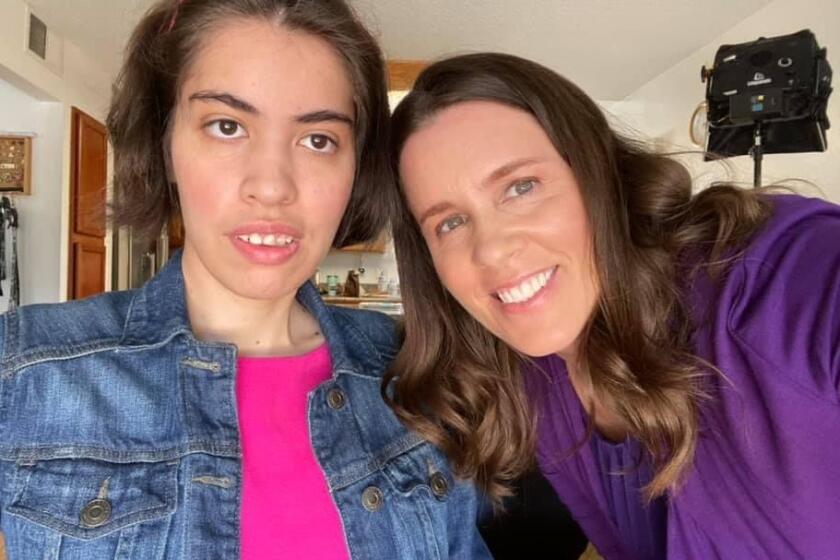What would Mister Rogers do?
The gentle Presbyterian in Pittsburgh taught about how to love and to listen, nourish others, honor who we are and what to do with the mad that we feel. During these tough times, we need that and more.
What would Mister Rogers do?
As we search for how to make these worst of times become the best possible time, our answers could very well lie in this question.
How would the children’s show superstar, whose compassionate wisdom transcended ages, behave in the midst of pandemic? Over a lifetime of weekly shows, Fred Rogers coaxed our better selves into his neighborhood. The gentle Presbyterian in Pittsburgh taught about how to love and to listen, nourish others, honor who we are and what to do with the mad that we feel.
Now what?
When he was a child, Mister Rogers admitted he’d get afraid when he saw scary things on the TV news. His mother would step in. “My mother would say to me, ‘Look for the helpers. You will always find people who are helping,’ “ he wrote. “To this day, especially in times of ‘disaster,’ I remember my mother’s words, and I am always comforted by realizing that there are still so many helpers — so many caring people in this world.“
So let’s do what Mister Rogers did. Let’s look for the helpers — and try to keep in mind the important things to remember.Mister Rogers’ neighborhoods
From Washington state to New Jersey, out-of-school students have chalked up sidewalks and driveways with colorful messages of resilience. “Stay safe.” “Love one another.” “Have hope.”
Each day in Mount Rainier, Md., a 69-year-old woman takes her cello onto her front porch to entertain people with a mini-concert.
In Cedar Park, Texas, Tonka the Great Dane makes the rounds of a senior living center, visiting with delighted residents through closed windows — finding a way to bridge emotional distance when physical distance is needed.
From shore to shore, volunteers, organizations and school districts are teaming up to feed millions of children whose loss of schooldays means loss of food, as well.
And in San Diego, volunteers at a local church are restoring 300,000 N95 face masks for medical workers.
“I have always wanted to have a neighbor just like you,” Mister Rogers sang. “I’ve always wanted to live in a neighborhood with you ... Won’t you be my neighbor?”Music’s ministry
Mister Rogers loved music. He had a bachelor’s degree in it. He wrote songs all his life and played the piano masterfully. He hosted a wide portfolio of musical guests on his Public Television show — from cellist Yo-Yo Ma to singer Tony Bennett to jazz trumpeter Wynton Marsalis.
As he grew up, rather than stomp around the house, Mister Rogers’ parents encouraged him to play out his mad feelings on the piano. It was a lifelong lesson. “Music can go beyond helping us recall the past,” he said. “It can be a way for us to cope with the present.”
In these past weeks, we’ve seen our best musicians take center stage with free concerts online and on the air to keep us together while we are apart. The stars have come out like a canopy of light on a desert night. Too many to count — but they all count.
Nineteen self-isolating musicians from the Rotterdam Philharmonic Orchestra joined together virtually to perform Beethoven’s “Ode to Joy.” Rotterdam, which saw its city center destroyed in World War II, knows something about surviving.
Country singer Keith Urban rocked out on his guitar from his storage warehouse, performing to an audience of one — his wife, Nicole Kidman. John Legend sang “All of Me” in his bathrobe. Lizzo played her flute, concluding with a meditative exhortation to speak in love and avoid negativity.
If you crave some laughter with your tunes, former Voice contestant Chris Mann has a hilarious shut-in parody of Adele’s song “Hello.”
With Broadway shuttered, performers are showing us how to wash our hands for the prescribed 20 seconds while singing their favorite show tunes. Among them: “Aladdin’s” quintessential Genie, who sang a song from “Phantom of the Opera.” A very necessary coping skill indeed, since before COVID-19, Americans washed their hands for an average of about six seconds.Essentially, ‘thank you’
In this war, our soldiers wear scrubs — if they can get them.
Just like other countries, the mounting death toll in the U.S. includes many men and women who worked as first responders, in emergency rooms and intensive care units.
New York nurse Kious Kelly texted his sister after he was hospitalized to reassure her was OK. “Don’t tell Mom and Dad,” he wrote. “They’ll worry.” Kelly died. Dr. Frank Gabrin, an emergency room physician in New Jersey, died in his husband’s arms a week after he took sick with COVID-19. His husband blamed a lack of personal protective equipment.
The list swells.
Just when we think we have no more tears to shed, we hear another story from these helpers. Doctors and nurses in visitor-restricted hospitals using their phones to help families say goodbye. Body bags stored inside refrigerated trucks. A night-shift EKG technician whose electric smile is gone forever.
When a reporter asked an ER doctor in Chicago what we could do, the physician’s request was profoundly simple. “If you have a friend or a colleague or anyone you know in the health care industry who’s working the front lines, just send them a text saying God bless you, love you, thank you for what you’re doing,” said Dr. Scott Samlan.
From billboards along interstates and balconies from Manhattan to Rome, the refrains of thanks have been resounding.
“We have heard your stories and seen some of your great work,” New England Patriots coach Bill Belichick posted on patriots.com. “You are truly champions and warriors.”
“60 Minutes” used the last moments of a recent episode to thank all those going to work while we shelter in place — from grocery clerks to pharmacists. “They do it not because they’re unafraid, but because of their sense of duty,” Lesley Stahl said, before adding: “They deserve every ‘thank you’ we can offer.”
And, as a further reminder that gratitude is a global language, Barcelona hospital workers broke into applause for the cleaning crews.
Mister Rogers said words like, “I’m grateful for you,” are “what eternity is made of: invisible, imperishable good stuff.”Finally ...
What you’ve read here comes from the reporting of news media everywhere. Broadcasts from CBS, NBC, ABC, CNN and NPR. Pieces from The New York Times, Washington Post, USA Today, Sacramento Bee, this newspaper and so many platforms.
This was done in memory of Mister Rogers, because when he was ordained to ministry, he was given the charge to serve children and families through media. In these past weeks, the media carried on this charge by looking for the helpers. Mister Rogers, who died in 2003, would be proud; so should we.
In the end, perhaps ethics in a pandemic are no different than the everyday virtues Mister Rogers extolled.
“There are three ways to ultimate success,” he told us. “The first way is to be kind. The second way is to be kind. The third way is to be kind.”
Sandi Dolbee is the former Religion & Ethics Editor of The San Diego Union-Tribune and a former president of the Religion News Association, where she still serves as a judge for its annual contest. She lives in Northern California and works as a freelance writer and editor. Last semester, she led a seminar on “Ethics for this New Millennium” for the Renaissance Society at Sacramento State University.
Get U-T Arts & Culture on Thursdays
A San Diego insider’s look at what talented artists are bringing to the stage, screen, galleries and more.
You may occasionally receive promotional content from the San Diego Union-Tribune.





